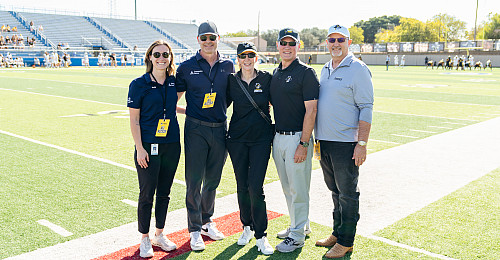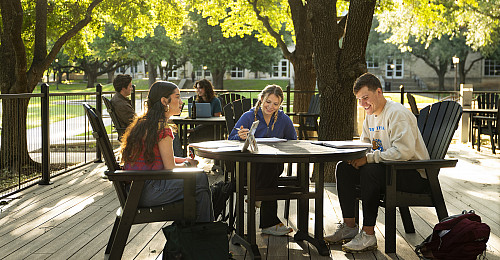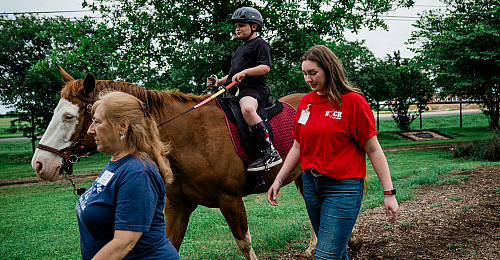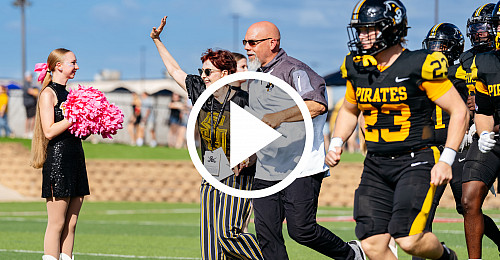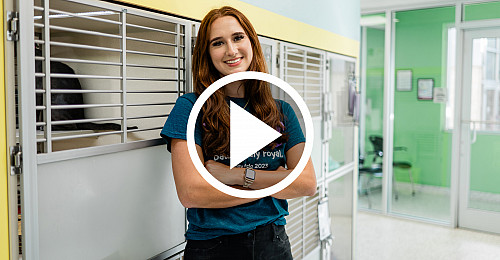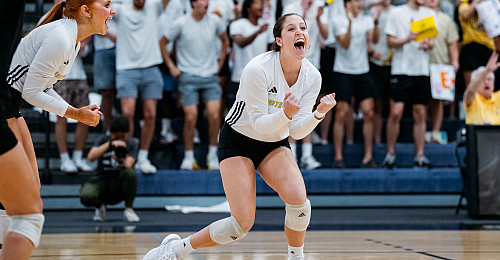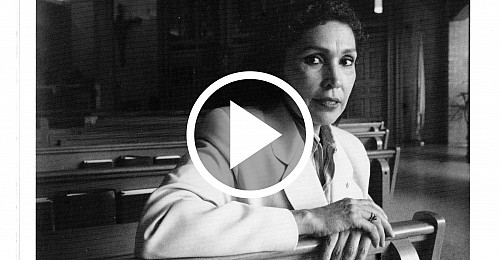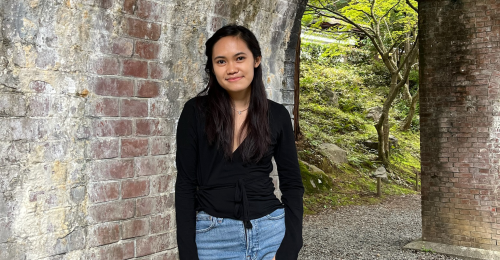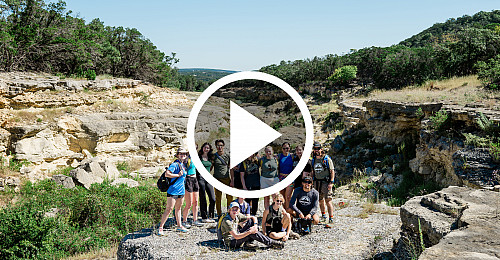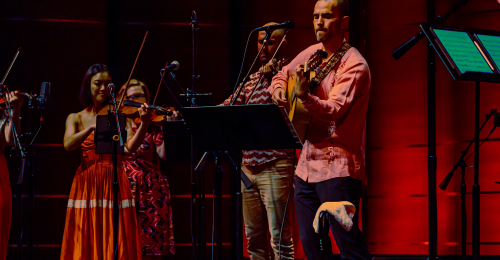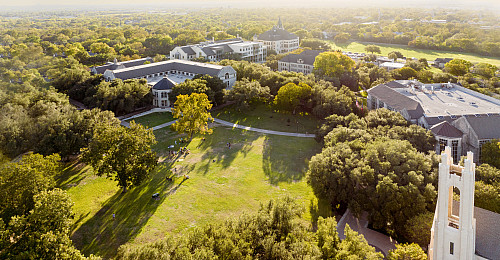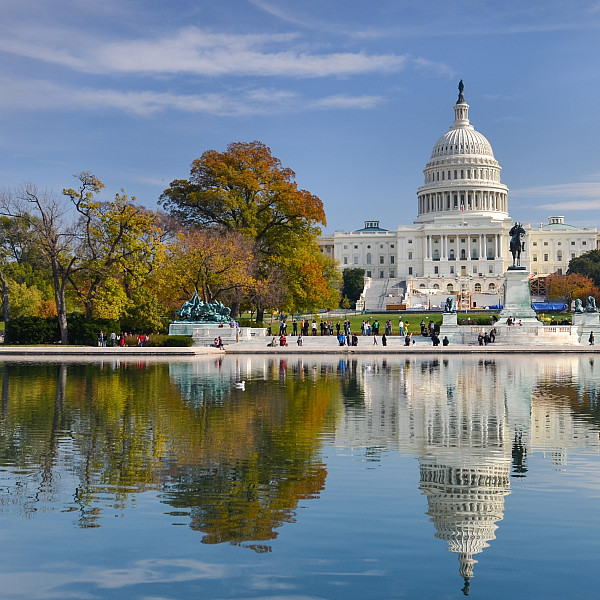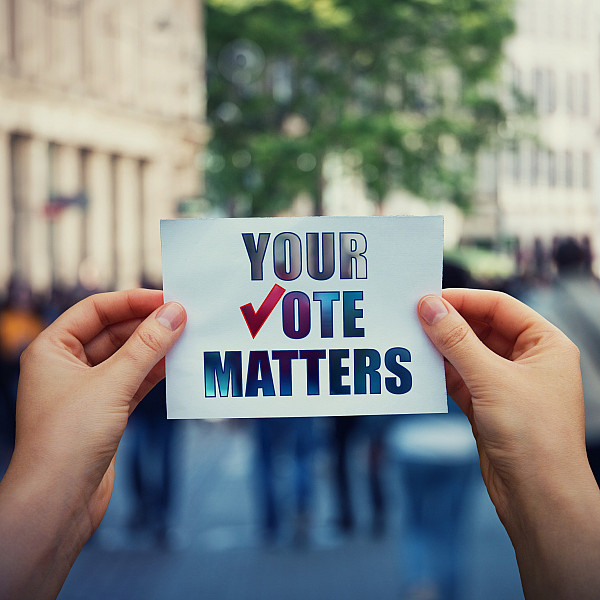News
Holding Her Ground
April 08, 2021
April 08, 2021
Open gallery

In fifth grade, a mock trial convinced Breely Peterson ’20 that she wanted to be a lawyer. “I love—not arguing, but I can talk forever, I will hold my ground, and I just really enjoy government,” she says excitedly. In high school, she participated in Girls State, a competitive program that, according to the American Legion Auxiliary, “focuse[s] on responsible citizenship, leadership, and love for God and country”; Peterson treasured the experience so much that she continued as a Girls State counselor during her college years. At Southwestern, she majored in political science and landed a coveted position as a legislative intern with the Texas House of Representatives during the spring of her sophomore year. Her officemates at the Capitol were so impressed with her work that they asked her to stay on as a part-time paid policy analyst even though she was still an undergraduate.
“They said, ‘We’d love to have you back,’ and I told them I’d come and clean the office if that’s what it took to let me come back,” Peterson recalls with winning enthusiasm. “I love it there so much!”
During her junior year, Peterson also earned a Sumners Scholarship, which connects college students with opportunities in government and policymaking at the state and federal levels. The program enables its scholars to undertake academic coursework and internship opportunities in Washington, DC, during their junior–senior summer in college, but COVID-19 prevented the Southwestern history minor from traveling to the nation’s capital in summer 2020. Nevertheless, the grateful and good-spirited Peterson was able to take that disappointment in stride, focusing instead on the remote internship that she would still get to enjoy. “I wanted to go to DC for many reasons. I couldn’t put too much pressure on figuring out my career path in one summer, but I was hoping to meet different people and see different possibilities… . But I’ll get there at some point,” she laughed breezily.
Considering Peterson’s meteoric career so far—she interned for U.S. Congressman John Carter during her last semester at SU and has been working as a deputy press secretary for the U.S. House of Representatives since her early graduation in December 2020—one might say that that “some point” has already arrived for Peterson.
All political leanings welcome
Peterson admits that she initially didn’t intend to come to Southwestern because the university is a mere 20 minutes away from where she grew up in Rock Round, Texas. However, after visiting the campus, she had a change of heart: the school just felt like home, she shares, and after learning that she could swim competitively for SU (“Coach Duncan is the best person ever!” Peterson says fondly) and that she had won a prestigious Brown Scholarship, her decision was “a no-brainer.”
Peterson gravitated quickly toward political science. She took courses such as American Politics and Political Psychology, which she found “just fascinating,” and she got to conduct research on free speech with Assistant Professor of Political Science Emily Sydnor. “I love my professors. Dr. Sydnor and Dr. [Eric] Selbin are some of my favorite people. I’ll sit and talk with them for two hours,” she shares. An ideological agnostic before college, Peterson deeply appreciated that she was able to develop her own political stances and was encouraged by her professors to voice her arguments, even when they opposed those of her classmates. “I tend to have different views from the majority of the student body at Southwestern,” she explains, which was evidenced by her interning with Republican State Representative Tony Tinderholt. But Sydnor and Selbin always reassured her that her insights were crucial to classroom conversations. “They’re willing to sit and hear me out and are just so accepting,” Peterson describes. “I’d ask, ‘Is this view wrong?’ And they’d say, “No, it’s just different,’ and ‘That completely makes sense why you hold this view.’ Or they’d ask, ‘Have you thought of this perspective?’ … They’re not trying to say, ‘These are the views you need to hold, this is the path, and these opposing things are wrong.’”
Peterson adds that her experience belies many people’s expectations of Southwestern, especially the assumptions of those who mistakenly think that liberal-arts universities indoctrinate students into progressive politics. “There tend to be stigmas associated with the liberal arts and especially with political science departments, but Southwestern professors are so great at breaking down all of those assumptions and meeting people where they’re at,” Peterson explains. “That just really inspired me and encouraged me to find that community of accepting, loving people who will challenge me and push me to be better, even outside academia. I cannot speak highly enough about all of my Southwestern professors.”
A meaningful impact
Peterson’s exhilarating conversations with her political science mentors included not just topics from class but also current events and her career ambitions. Those chats helped Peterson envision new professional pathways. “I’ve always been a planner, and I’m really passionate about human rights… . I want to make a meaningful impact while combining it with policy. So law school seemed the most logical,” she says. However, through classes and talking with faculty, she quickly came to realize that becoming a lawyer was not her only option. Perhaps, she learned, she could achieve her goals by working in government instead.
In the spring of 2019, Peterson eagerly enrolled in a Texas Internships class that was led by Professor of Political Science Bob Snyder and team-taught by Sydnor, Selbin, and Professor of Political Science Shannon Mariotti. Peterson and five classmates applied for and landed internships with state representatives or senators; this was how Peterson began working at the Texas Capitol during the 86th legislative session. During class meetings, the group discussed assigned readings and wrote reflection papers applying those readings to their off-campus work. “It was just really cool. Southwestern does a really good job of applying our education to the real world, and that class was a phenomenal example of it,” she says.
Peterson initially answered phones and emails, talked with constituents, and attended meetings during her internship, but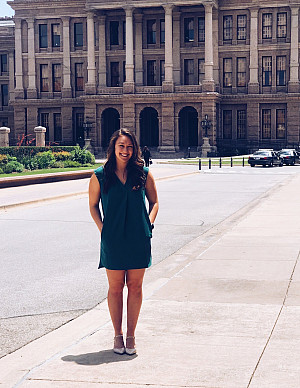
her responsibilities grew throughout the semester. By the end, she was analyzing policy—meaning that she read legislative bills for key terms and issues and tried to discern what each law was trying to accomplish, how much it would cost, what its advantages and disadvantages were, and, consequently, where the representative might stand on the issue. It took a while to get the hang of it all, and as an intern, she obviously did not have a say as to how her boss should vote. But, Peterson says, “I was very grateful getting to read policy at face value and listening to debates on the House floor. I’ve become a lot more educated on all different viewpoints, which was really cool to see.” She was also thankful for having had the experience of Girls State and her history classes at Southwestern because they helped her parse the language of government documents. “At Girls State, you had to learn how to read a bill because legal jargon is its own language,” she says with a knowing laugh. “History classes,” she continues, “teach you that you can’t read every word of every sentence; you have to learn to skim and find the main point. And so that proved very beneficial. Some bills are two pages long, but then some are 20 pages long. I was able to get the hang of reading legislation much faster than I would have without Southwestern.”
In addition to learning about the complexities of how bills are passed, Peterson’s respect for the government leaders she worked for was balanced with a clear sense of their humanity. “Political dramas on TV make them seem corrupt and evil, but the representatives and senators are just people,” she observes. “Getting to see them firsthand and interact with them was really cool. [I’d think,] ‘You’re in a high position of power, you’re really smart, and I have so much respect for you, but also you’re a person.’ And they really do want what’s best for the people of the state of Texas.”
A self-professed “Capitol nerd” who had “heart eyes all the time” for the building and institution where she worked, Peterson was ecstatic that she was asked to continue her work as a part-time staff member and reveled in the challenge of becoming a policy analyst. She attributes her ability to adapt to the hustle and bustle of state government not just to her Southwestern coursework and prior experience with Girls State but also to her office colleagues. “The people I got to work with—they are fantastic! I love them,” she says. “They were really good about answering questions and suggesting what to do next time. It was really nice as a sophomore to get experience in the working world and to put my professional clothes on and think, OK, they accepted me for this job. I’m supposed to be here… . This is what I have to look forward to, and this is what I am working towards.”
The Sumners experience
The Sumners Scholarship expanded Peterson’s experience with government and introduced her to subject matter she didn’t know she’d enjoy. For example, she attended a number of Sumners-sponsored talks, including one about space exploration delivered by the then-newly appointed head of NASA, Jim Bridenstine. “I’m not a science person,” Peterson says, “but it was one of the most interesting things ever. Sumners allows us to experience these things I would never have expected [that] just broaden our horizons.” She also connected with other student scholars, networking and sharing ideas for different career options.
Another highlight was the Texas Tribune Festival, a three-day policy event in downtown Austin where politicians such as Ted Cruz and Nancy Pelosi were speaking. “It’s just really cool that Sumners allows us to be able to attend events that we wouldn’t have been able to,” she says. Peterson was especially excited to see Samantha Power, former U.S. ambassador to the U.N., speak considering Peterson had read one of Power’s books for Associate Professor of History Melissa Byrnes’s History of Human Rights seminar. Considering that Peterson would someday like to be a U.N. ambassador herself, the opportunity spawned ample inspiration.
In June 2020, Peterson took two courses online hosted by the Sumners Foundation’s partner The Fund for American Studies and taught by faculty at George Mason University: Foreign Policy as well as Economic Problems and Public Policies. She simultaneously interned remotely with Running Start, a DC-based nonprofit that provides leadership training for young women who want to run for public office. Peterson’s past work as a counselor with Girls State and as a leader with the Georgetown and Southwestern chapters of the Christian youth ministry Young Life were ideal preparation for the internship because she would again be mentoring high-school girls, but this time, she focused specifically on preparing her charges with careers in government by walking them through a political campaign. Peterson says she embraces such mentoring opportunities because they are “win–win, dual-learning experiences” in which she discovers more about herself and grows while helping others, always learning as much from her mentees as she hopes they learn from her.
“Beyond grateful”
Following her Sumners summer, Peterson began interning with Republican U.S. Representative John Carter, who serves the 31st congressional district in Texas. After graduating from Southwestern in December, Peterson was promoted to deputy press secretary, a staff position in which she assists with communications, press releases, and public outreach. Considering the challenging current job market and the conventional expectation that a fresh-out-of-college graduate might land an entry-level job, Peterson’s position as a midlevel staffer with the federal government is an amazing feat that is a testament to her motivation and hard work.
Nevertheless, despite being a thoroughly organized person, Peterson hasn’t yet decided on a definitive career trajectory; she’s taken to heart the lesson that SU taught her: “There’s not one set path to follow.” She does have her sights set on “something along the lines of policy and human rights, where I can make an impact,” she says. But, she adds, “I’m trying to hold back a little bit because I don’t know everything that’s out there, so if I set myself down one path without exploring and being open to other options, that’s not ideal, and I’ll probably end up where I’m not supposed to end up. I’m trying not to be anxious about it; I have the general next steps. I know what I’m interested in, and so it will work out.”
That courage and open-mindedness will undoubtedly take Peterson to many exciting, fulfilling places during the long career she has in front of her. It’s not difficult to imagine her eventually achieving her dream job of becoming an ambassador to the U.N. advocating for human rights. But she admits she still sometimes can’t believe she’s already worked in a bustling state capitol and is working for the federal government now. “If you’d told my high-school self that, she would have never believed you,” she says. “It was always like this distant dream, but Southwestern and the Brown and Sumners scholarships have allowed me to apply my education in a meaningful way and reach all these opportunities way more quickly than I ever would have thought.”




